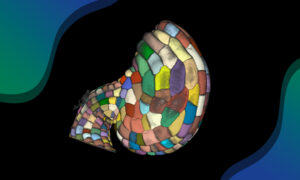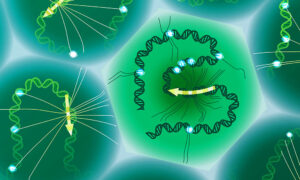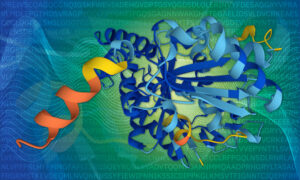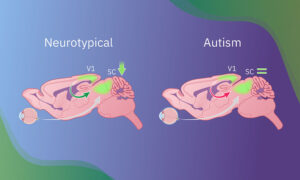
Genetics of ‘room-mate’ influences health
Healing and anxiety are influenced by the genetics of one’s social partners, according to new research from EMBL-EBI.
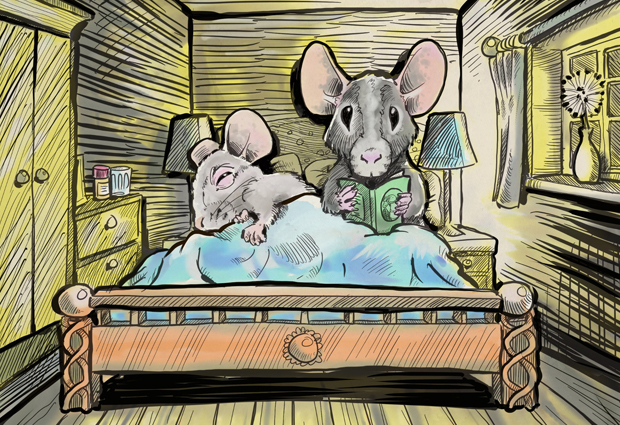
Researchers at the European Bioinformatics Institute (EMBL-EBI) have shown that the health of individual mice is influenced by the genetic makeup of their partners. Their work on social genetic effects, published in PLOS Genetics, indicates that research into genetics and disease should include the genotypes of both individuals and their partners.
Summary
- For the first time, research in mice shows that the genetic makeup of an individual’s social partners contributes to their state of health.
- Unexpectedly, the genetics of social partners were found to affect wound healing and body weight as well as behaviour.
- The methods used to detect ‘social genetic effects’ help future research into the mechanisms whereby one individual influences another.
- Findings underscore that research into the genetics of disease should include both individuals and their partners.
Background
Most traits are genetically controlled to some extent, for example, one’s sleep preferences have a genetic component. But nothing happens in isolation. If your partner is a night owl and keeps you awake later than you’d like, their genotypes might be partly to blame.
“People influence your behaviour, health and wellbeing, and you influence theirs – this much we know already. What’s been missing is recognition that there is a genetic basis for this,” explains Amelie Baud of EMBL-EBI, who led the study. “If you’re a researcher looking for links between genotypes and disease, it is very important to look not only at your patient but also at their social environment.”
Research into ‘social genetic effects’ can help patients and doctors identify the best way to intervene when a patient’s health is affected by their partner.
“People choose each other, and know they influence one another,” Baud continues. “But often they are not aware of how this works.”
Research on social genetic effects can uncover the biological mechanisms that determine how individuals influence one another. The influence of a social partner can be mediated by so many traits that it would be unrealistic to measure them all. By contrast, measuring the genotypes of a patient’s partner is straightforward and can reveal important drivers.
“Imagine you are a morning person and your partner is a night owl. So every night you end up going to sleep later than you’d like,” explains Baud. “Now, say you develop an illness, but don’t mention the sleep situation to your doctor because you don’t know that it’s important. Maybe your doctor doesn’t ask you because she doesn’t know it’s relevant. But if research showed there was indeed a connection between your illness and the genes that control your partner’s sleeping pattern, then your doctor could better probe your life habits and give useful advice. You and your night owl could then make the right change to ensure you get the sleep you need to heal. With this change, you would be mitigating the negative influence of the night owl’s genotypes on your health.”
What they found
In this study, the researchers used two strains of mice, grey and black, and set them up as unrelated ‘roommates’ in different combinations. They studied social genetic effects by measuring associations between traits such as wound healing, body weight, anxiety and depressed mood in individual mice and the genetic makeup (strain) of their cage mates.
“You can detect social genetic effects even if you don’t know the specific traits that mediate how an individual is influenced by their social environment,” says Baud. “We only measured traits like healing, anxiety and body weight in mice and genotypes in their cage mates. We found a surprisingly high contribution of the strain of the cage mates to variation in these measures.”
The researchers also re-analysed an existing dataset from 2500 genetically unique mice to investigate more health-related traits, studying a population that is genetically more similar to the human population. They found that social genetic effects explained up to 29% of phenotypic variance in the traits measured.
The team found that the traits most affected were wound healing, anxiety, immune function, and body weight. In some cases, the contribution of social genetic effects exceeded that of direct genetic effects (i.e. the effect of an individual’s own genotypes on these traits).
Why it matters
“Although today’s study was carried out in mice living together, it provides food for thought about how individuals can be influenced by the genetic makeup of the people in their lives – and vice versa. The methods and approaches we developed could certainly be applied to human studies,” says Oliver Stegle of EMBL-EBI.
By studying social genetic effects, the researchers hope to learn more about the mechanisms whereby people influence one another.
“As a geneticist I want to provide doctors with information to understand the mechanisms and causal pathways behind a disease, so they have a better idea of how to intervene to help their patient heal,” says Baud. “Our goal is to include the full genetic ecosystem to understand how we influence one another.”
– Ends –
This post was originally published on EMBL-EBI News
